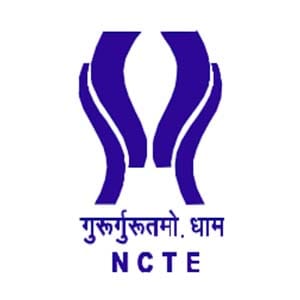📚 What is a B.Ed College?
A B.Ed college is an educational institution approved by the National Council for Teacher Education (NCTE) and a recognized university, offering a Bachelor of Education (B.Ed) program. It prepares aspiring teachers for careers in schools and educational institutions by providing theoretical and practical training in teaching methods, pedagogy, and subject knowledge.
Alternatives: D.El.Ed , NTT , MTT , NPTT ,D.Ed, D.P.Ed , PGDE these are also in Demand Incase of NTT/MTT always ask for CTE approved Certificate
NOTIFICATION: The traditional 2-year B.Ed course has been officially closed, and from session 2026 a new 4-year B.Ed program, known as the Integrated Teacher Education Program (ITEP), has been introduced. From now on, approval to start new B.Ed colleges affiliation will be granted only for 4-year B.Ed (ITEP) courses or 1-year B.Ed courses. Rest all norms are as it is. Only duration has been changed
📈 Why Start a B.Ed College in India?
With increasing emphasis on professional teacher training under the National Education Policy (NEP 2020), the demand for NCTE-approved B.Ed colleges is rising across India.
Key Benefits:
- High-profit potential
- Stable annual student admissions
- Reputable and socially impactful business
- Government-recognized qualifications for students
- Long-term business opportunity with low operational expenses
📊 B.Ed College Setup Requirements
| Requirement | Details |
|---|---|
| Approvals Required | Bivha will provide you |
| Land Area | Minimum 300–3000 sq. mtr (as per NCTE norms) |
| Built-up Infrastructure | 30–3000 sq. mtr with classrooms, labs, library, offices |
| Laboratories | Psychology Lab, Computer Lab, Science Lab, Language Lab |
| Library | 100–5000 books, journals, and e-resources |
| Faculty Requirement | Professors, Assistant Professors, Librarian as per norms |
| Investment Estimate | |
| Student Intake | Starts 50-100 seats (can be expanded with approvals) |
📝 How to Start a B.Ed College in India: Step-by-Step
1: Register at College Affiliation Portal .
2: Acquire land and build infrastructure as per NCTE guidelines.
3: NOC.(Not necessary, if you choose Franchise)
4: Apply for Bivha recognition through the official Bivha affiliation portal.
5: Get inspection and approval from Bivha .
6: Apply for affiliation with a recognized university.(Not necessary)
7: Recruit qualified faculty and non-teaching staff.
8: Begin admissions and launch your academic session.
💰 B.Ed College Investment & Earning Potential [Not necessary, Incase you choose franchise model]
| Expense Category | Estimated Cost (₹) |
|---|---|
| Land Purchase & Development | |
| Building & Infrastructure | |
| Library & Laboratories | |
| Furniture & Equipment | |
| Approval Fees & Applications | 3 lakh – ₹12 lakh |
| Marketing & Launch Expenses |
💸 Annual Income Potential:
With 100 seats at ₹50,000–₹80,000 per student, you can earn ₹50 lakh–₹80 lakh annually.
📖 Frequently Asked Questions (FAQs)
Q1. Is NCTE approval compulsory for a B.Ed college?
👉 Yes, it is legally mandatory to obtain NCTE recognition to start and run a affiliated B.Ed college in India.
Q2. How long does it take to open a B.Ed college?
👉 On average, it takes 2 to 18 months, including approvals, infrastructure setup, and faculty recruitment.
Q3. Can a private individual open a B.Ed college?
👉 Yes, registered trust, society, or Section-8 company are also eligible.
Q4. What is the minimum land required to start a B.Ed college?
👉 Minimum 300–3000 sq. mtr of land is required, depending on the state and location.
Q5. Can a B.Ed college offer other courses too?
👉 Yes, with separate approvals, you can offer D.El.Ed, M.Ed, and certificate programs in teacher education.
📌 Final Thoughts
Starting a B.Ed college in India is a rewarding and profitable education business. By securing NCTE recognition, state NOC, and university affiliation, you can establish a prestigious institution offering valuable teacher education programs. If you’re planning to open a school, college ,paramedical college, B.Ed institute, or NTT training center in India, you should choose franchise instead of regular affiliation.
Need help starting your B.Ed college? Contact our Affiliation team for expert guidance on approvals, infrastructure planning, and documentation support.
📈 Why should you go for franchise
🎓 Franchise vs Regular Affiliation: What Should You Choose to Start an Educational Institute?
If you’re planning to open or affiliation for a school (NIOS,IGNOU,CBSE,ICESE), college ,paramedical college, B.Ed institute, Nursing College , physiotherapy college ,ITI, Polytechnic College or NTT training center in India, one of the first big decisions is:
Should I go for a franchise or regular affiliation model?
Each model has its own pros and cons. In this article, we explain both models clearly so you can choose the right path based on your goals, investment, and timeline.
✅ What is a Franchise Model in Education?
In the franchise model, you open your institute under an already established brand name. You use their curriculum, software, certificates, and support system. The franchisor (main institute) already has necessary approvals (like NCTE, UGC, or university tie-ups).
You get:
- Readymade branding and reputation
- Fast launch without heavy documentation
- Support in setup, admissions, marketing, and exams
- Certification under parent brand’s approval
✅ What is a Regular Affiliation Model?
In the regular affiliation model, you create your own independent college or institute by applying for approvals and affiliations yourself. This includes applying to:
- NCTE (for B.Ed, D.El.Ed)
- UGC (for university status)
- State government for NOC
- councils, teaching boards, etc.
You manage everything independently, including infrastructure, staff, inspections, certificates, exams, and branding.
🆚 Key Comparison: Franchise vs Regular Affiliation
| Feature | Franchise Model | Regular Affiliation Model |
|---|---|---|
| Setup Time | 30 to 90 days | 12 to 18 months |
| Investment Required | Low to Medium (5–10 lakhs) | High (1.5–3 crores+) |
| Brand & Recognition | Uses existing brand | Build your own brand |
| Approvals | Already obtained by franchisor | You must apply & wait for approval |
| Certifications | Issued under parent brand | Issued under your college name |
| Risk Level | Low (with franchisor support) | High (due to approval delays or rejection) |
| Control & Flexibility | Medium | Full control over academic operations |
| Scalability | High (multiple centers) | Medium (expands slowly with approvals) |
💡 Why Many Choose Franchise (Especially for New Institutes)
- ✅ Faster launch with fewer legal hurdles
- ✅ Lower investment and no need to buy huge land
- ✅ Trusted brand name helps with marketing
- ✅ Easy to manage with operational support
- ✅ Avoids complex affiliation or inspection delays
- ✅ Ideal for small towns, Tier-2 & Tier-3 cities
❗ When to Choose Regular Affiliation
- You’re ready to invest ₹2–3 crore+
- You want to run a university-recognized degree program
- You want to build your own education brand
- You can handle NCTE/UGC/state-level paperwork
- You’re experienced in the education industry
❓ FAQs: Franchise vs Regular Affiliation
Q1. Can I start a college without NCTE/UGC approval?
👉 Only if you take a franchise from an institute that already has approvals.
Q2. Can I issue certificates under my name with a franchise?
👉 Certificates will carry the franchisor’s name/logo unless agreed otherwise.
Q3. Is franchise legal in education?
👉 Yes, franchise models are legal when proper agreements and documentation are followed.
Q4. Is regular affiliation better in the long run?
👉 Yes, for brand independence and higher profit — but it requires more investment and risk.
Q5. What’s the typical franchise fee for education institutes?
👉 It varies: from ₹85,000 to ₹15 lakhs depending on the brand, course, and city.
🔚 Conclusion: Which Model Should You Choose?
✅ Choose Franchise if you’re a beginner, want low risk, faster launch, and don’t want to deal with complex regulations. Franchise will provide you peace of mind, because your parent organization will do all the legal, and compliance. Bivha Open school offers more than 3,60,000 courses along with its partner website such as domestika.org, skillshare.com and others .
Estimated Total Investment To Establish New B.ED College [2026-27] | REGULAR MODEL
| Cost Component | Approx. Range (Indian Rupees) |
| NCTE Recognition Fees & Documentation | 18,00,000 |
| University Affiliation+ Legal + Endowment + Reserve FD | 15,00,000 |
| Endowment + Reserve FD + State Government Security/Compliance Deposits +DOE Fees | 15,00,000 |
| Land & Building Setup / Facilities | |
| Furniture & Library/Lab Setup | |
| Technical Fees [KNOW HOW] | 8,00,000 |
| NOC +POCKET EXPENSES | |
| Total First-Year Investment |
Approx. 45-55 Lakhs needed to Establish New B.Ed College . If budget issues you should opt for some alternate options, I.E “Franchise Model”.
B.Ed 2 Year Course Closed: New 4 Year B.Ed (ITEP) Becomes Mandatory for New Colleges
(Quick Summary)
The 2-year B.Ed course has been discontinued for new approvals, and the 4-year B.Ed program, known as the Integrated Teacher Education Program (ITEP), has been introduced as the primary route for teacher training. From now on, new B.Ed college approvals will be granted only for 4-year B.Ed (ITEP) or 1-year B.Ed programs, as per the latest teacher education reforms aligned with NEP 2020. It is basically a 4 year Graduate + 1 Year Education program.
What Has Changed in B.Ed Courses?
- ❌ 2-year B.Ed course closed for new colleges
- ✅ 4-year B.Ed (ITEP) introduced
- ✅ 1-year B.Ed allowed for eligible candidates
- ❌ No new approval for 2-year B.Ed institutions
This reform aims to strengthen teacher preparation by integrating subject knowledge and pedagogy from the undergraduate level.
What Is the 4-Year B.Ed (ITEP)?
The Integrated Teacher Education Program (ITEP) is a dual-degree professional course designed for students who complete Class 12.
Key Highlights:
- Duration: 4 Years
- Entry Level: After 12th
- Degree: Integrated UG + B.Ed
- Focus: Teaching skills, pedagogy, psychology, internships
- Policy Framework: National Education Policy (NEP) 2020
The 4-year B.Ed reduces total study time while improving classroom readiness.
Is the 2-Year B.Ed Completely Cancelled?
No.
- Existing 2-year B.Ed colleges may continue as per regulations
- New colleges will not receive approval for 2-year B.Ed programs
This distinction is important for both students and institutions.
Who Can Do the 1-Year B.Ed Course?
The 1-year B.Ed program is available for:
- Candidates with a postgraduate degree
- Candidates with a 4-year undergraduate degree
This pathway ensures faster professional certification for advanced learners.
New Rules for Starting a B.Ed College (Latest Update)
To start a new B.Ed college:
- ✔ Approval only for 4-year B.Ed (ITEP)
- ✔ Approval allowed for 1-year B.Ed
- ✖ Approval not allowed for 2-year B.Ed
Institutions must follow updated infrastructure, faculty, and curriculum standards.
Why This Reform Matters
Benefits for Students
- Early entry into the teaching profession
- Strong academic + professional foundation
- Improved employability
Benefits for Education System
- Better-trained teachers
- Standardized teacher education
- Long-term quality improvement
Conclusion
The closure of the 2-year B.Ed course and the introduction of the 4-year B.Ed (ITEP) marks a major shift in teacher education. Going forward, only 4-year B.Ed or 1-year B.Ed programs will receive approval for new colleges, ensuring higher teaching standards and alignment with NEP 2020 goals.
Frequently Asked Questions
Q1. Is the 2-year B.Ed course closed in India?
Yes, the 2-year B.Ed course is closed for new college approvals, but existing colleges may continue their programs until further notice.
Q2. What is the new B.Ed course after NEP 2020?
The 4-year Integrated Teacher Education Program (ITEP) is the new standard for teacher training. It combines undergraduate studies with professional teaching education.
Q3. Can students join B.Ed after 12th?
Yes, students can join the 4-year B.Ed (ITEP) directly after Class 12. This program prepares them for teaching careers while earning an undergraduate degree.
Q4. Which B.Ed courses are approved for new colleges?
Only 4-year B.Ed (ITEP) and 1-year B.Ed programs will receive approval for starting new colleges. The 2-year B.Ed will no longer be approved.
Q5. Who is eligible for the 1-year B.Ed course?
The 1-year B.Ed course is for candidates who already hold a postgraduate degree or a 4-year undergraduate degree, allowing them to gain professional teaching certification quickly.
Q6. What are the main differences between 2-year B.Ed and 4-year ITEP?
- Duration: 2 years vs. 4 years
- Entry Level: After graduation vs. after Class 12
- Curriculum: 4-year ITEP integrates academic subjects, pedagogy, and school-based practice, making teachers better prepared.
Q7. Will existing 2-year B.Ed colleges continue running?
Yes, existing 2-year B.Ed colleges can continue teaching their current batches but cannot admit new students under the 2-year program from July 2026.
Q8. How does the 4-year B.Ed (ITEP) align with NEP 2020?
The 4-year ITEP follows NEP 2020 by:
- Integrating subject knowledge and teacher training from undergraduate level
- Focusing on internships and practical classroom experience
- Improving teacher readiness and quality education standards
Q9. Can a graduate still pursue B.Ed after 12th?
Yes, graduates can enroll in 1-year B.Ed programs if they already hold a bachelor’s or master’s degree. Canidates who have Bachelor’s degree along with 1 Year of experience can apply for 1 year B.Ed too.
Q10. What should new colleges do to comply with the updated rules?
New colleges must:
- Offer only 4-year B.Ed (ITEP) or 1-year B.Ed
- Meet infrastructure, faculty, and curriculum standards
- Follow guidelines issued by the National Council for Teacher Education (NCTE)
👉👉New Colleges Affiliation (Starting Fresh)
Here’s how you can start a new B.Ed college:
👉First Decide : Regular or Franchise
1 : Decide Course Type
- You can only start:
- 4-year B.Ed (ITEP) for students after Class 12
- 1-year B.Ed for graduates/postgraduates
2 : Prepare Infrastructure
- Classrooms, libraries, ICT labs, and teaching practice labs
- Hostel facilities (not manadatory)
- Internship arrangements with local schools
3 : Faculty Requirements
- Next, hire qualified faculty according to the NCTE teacher-student ratio guidelines.
- Subject-wise qualified lecturers for all teaching and pedagogy subjects
4: Apply for NCTE Approval
- Submit detailed project report, including to BIVHA:
- Courses offered
- Faculty and staff list
- Infrastructure details
- Curriculum plan as per NEP 2020
- Wait for inspection and approval
Step 5: Compliance and Audits
- Maintain ongoing compliance with NCTE norms
- Prepare for periodic inspections and reports

NEED HELP?
CALL 8986054337
What You Should Do Next
👉 Contact the Bivha Technical Education Division and the affiliating university you intend to work with:
- Ask how to apply and about norms
- Ask for the exact affiliation/renewal fees
- Ask for any state NOC financial deposit requirements
- Get their current checklist and fee schedules
NCTE Land & Infrastructure Requirement (Only incase of Regular Affiliation)

